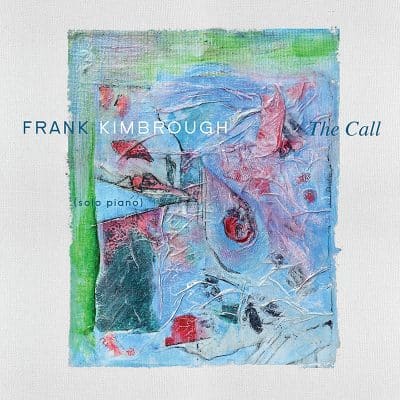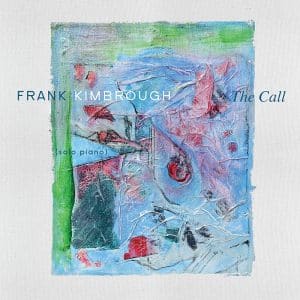Frank Kimbrough The Call

Frank Kimbrough
The Call
Sunnyside
The pianist, composer, educator, and bandleader Frank Kimbrough was a staple on the jazz scene across almost every conceivable configuration, from large ensembles to trios, duos, and solo material. The Call is the second posthumous recording of Kimbrough issued by Sunnyside Reords, following 2021’s Ancestors. You can expect to hear more too, as I’m already aware of a late May release. The Call is special in that it is only the second solo piano recording of the master, who issued Air (Palmetto, 2007). While the balance of that album was mostly originals, with four covers, The Call shifts that balance in favor of three Ellingtons, two from Dizzy Gillespie, one from Andrew Hill, a Gershwin, and three originals. There are no Monk covers because, as aficionados know, Kimbrough recorded Monk’s entire catalog of songs across 6 CDs on Monk’s Dreams (Sunnyside, 2018). As Kimbrough proved there and throughout his career, he was a masterful interpreter of standards and the jazz canon. The Call clearly reveals Kimbrough’s advanced sense of melodic variation, rich harmonics, astute use of space, and ability to improvise both on familiar material and on his own. The recording took place in 2010 when Kimbrough entered his favorite recording studio, Maggie’s Farm, in Bucks County, PA. Fortunately, engineer Matt Balitsaris captured the performance, but it was left aside until Balitsaris recently unearthed these original tapes.
Kimbrough commences the program with Ellington’s “Angelica,” with the pianist coloring the melody and the pacing with Monk’s angular touch. It’s remarkable how he twists and embellishes the melody in so many ways, using the entire piano. His sense of dynamics is impressive as well with the brisk opening morphing to more sensitive lines around the four-minute mark, and then back seamlessly. Gillespie’s “Tin Tin Deo” goes in a bluesy rather than a Latin direction, a sublimely beautiful ballad that showcases Kimbrough’s gentle and sensitive touch. Certain notes resonate, giving it a haunting feel. The title track, an original, is given its debut here, later to become a staple in Kimbrough’s repertoire, and heard on his 2014 Quartet (Palmetto). His fluidity is the hallmark of this piece.
One of George Gershwin’s most poignant pieces,, “I Loves You Porgy,” is taken at a most deliberate pace, letting each note ring out purely. It could not be more unhurried, yet shortly after the five-minute mark, Kimbrough bursts into a brief, effervescent improvisation before returning to the placid tone and pace of the piece. Similarly, he delicately treats Andrew HIll’s “From California with Love” with a few edgy touches for good measure and respect to the composer. In another original that appeared on Quartet, Kimbrough perfectly captures the feel of a gray, chilly day, mostly through his left-hand chording, on “November.” The pianist returns to Elliongton in “Reflections in D,” going even deeper into his dreamy, hypnotic approach as notes seem literally suspended or quickly evaporated into the ether. This wraps up a most tender sequence of three pieces.
Gillespie’s “Night in Tunisia” slowly unravels to the extent that the intro doesn’t allow one to immediately recognize the tune, but surely enough, Kimbrough gets into its rhythmic flow and has fun dancing around the melody. Kimbrough takes this to a high level in the almost 13 minute long version of Ellington’s “In a Sentimental Mood,” dividing into sections as if it were a suite. In doing so, he explores variations on the melody, establishes new themes, and finds his own space for improvisation. Again, the touch, the use of space, and the dynamics are all exemplary hallmarks of Kimbrough’s pianism. As the closer, Kimbrough puts aside any written sheets to deliver a spontaneous burst in “Improvisation.”
Though better known for his trio triumphs than solo playing, Kimbrough’s contributions to this format are prized and profoundly beautiful. Those who’ve encountered Air (Palmetto, 2007) or had the pleasure of hearing him play any number of extended intros live in the Maria Schneider Orchestra or elsewhere are already aware of that fact. But others who are only first experiencing Kimbrough sans band would do wise to embrace this initial brush as the gift that it is.
BUY NOW

Discover more from Making A Scene!
Subscribe to get the latest posts sent to your email.










